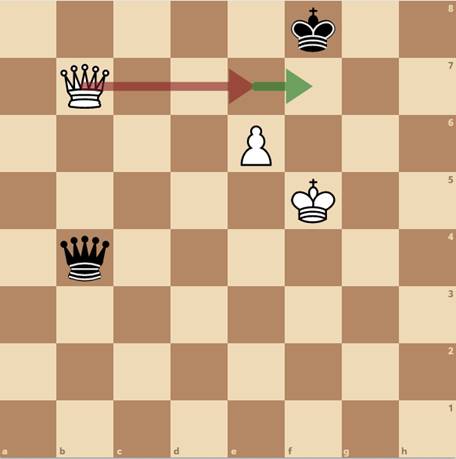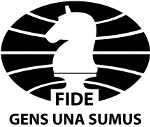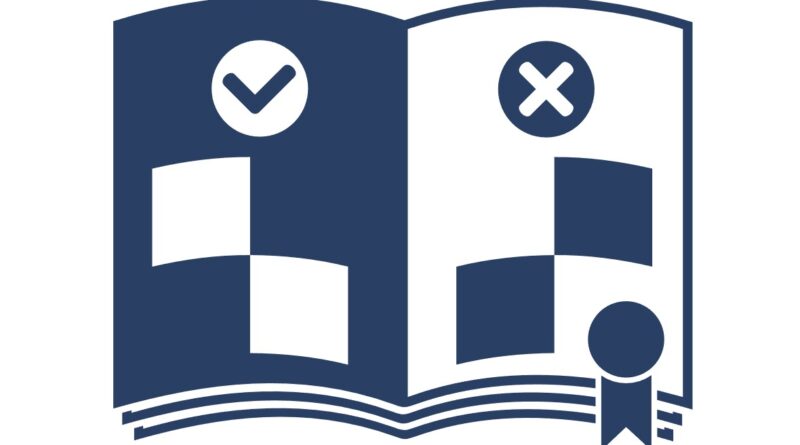Questions & Answers n. 2, February 2021 (Online chess)
Questions about FIDE Online Chess Regulations – part 2
by IA Stéphane Escafre, FIDE rules commission
During the last weeks, many competitions were organized online, for example the first Online
World Corporate Chess Championship. Something new, called “hybrid” also appeared
recently: a format where the games are played online, but the players are present in a public
place. And those hybrid competitions can be valid for rating. See here.
You can find FIDE Online Regulations here
Dear Stephane
Swiss Chess Federation is planning to maybe hold the Mitropacup as a FIDE rated
Hybrid Competition.
According to Art. 3.6 of the Online Chess Regulations players can activate and use
additional options (Smart move, Pre-move, Auto-promotion to Queen).
I am referring to your answer to the following question:
I wanted to castle but my mouse just moved the king one square. Can you
take back the move?
S.E.: No. It’s like in “over the board” chess. If you move the piece to the wrong square, it is
your responsibility. We had this problem during the Olympiads for disabled people, where we
used the assistance for blind players: the assistant made a move different than the one the
player indicated. In this case the arbiter used wisely the “takeback button”.
The answer is clear and it is of course the player’s responsibility to move the piece to
the right square.
Now if, in a rated event, the following “Mouseslip”-situation occurs:

For some reason the mouse just moves to e7 instead of f7, which is of course a clear
“mouseslip” that costs the game, the team point and the rating points, which is a
delicate situation.
Coming back to article 3.6.: There are chess servers that provide an elegant solution
for such situations (like chess.com Android and iPad app but not on the website on
PC…). On those you can activate the option “confirm move” (on chess.com Android
App it is in live chess preferences “show Submit button”). This means that the
players clock will not stop moving until he clicked a button to confirm his move. So,
the move is not finished when played but it is finished when the player himself
confirmed/submitted it. In my eyes this function would not get in trouble with the
“touch move”-rule: In online chess you can touch (click, drag) all the pieces you want
beforehand as long as you don’t let go your mouse keys. So, I cannot understand,
why this “confirm move” resp. “Submit” option should be prohibited. It would prevent
bad blood after mouseslips (which of course can also have technical reasons ->
mouse stops working, bad mousepad, touchscreen error, etc.).
Long question short: Why isn’t a “confirm move” or “Submit button” option allowed
in Article 3.6 of the Online Chess Regulations but pre-moves, auto-queen and even
Smart move are allowed?
Of course, if the players do not activate this option, it is his fault, but I think in serious
long and rated games this option should be, firstly, allowed and, secondly, provided
by the playing platform.
Thank you for a reply and kind regards,
Oliver
Swiss Chess Federation
Oliver Marti
Secretary General
Stéphane Escafre: Dear Oliver. The Rules are alive, they were born, they grow and they
evolute like a living creature. Evolution is a normal process. Today what you propose is not
allowed, but of course this can change. I insist that this is the responsibility of the player to
check his tools (mouse for example). And, also, can you make a difference between a “clear
mouseslip” and a blunder?
Anyway, I will propose to discuss about your proposal in our next meeting. “Confirm move”
can be a problem if a player uses it to analyse, which is forbidden. If we look at the situation
over the board (real wood or plastic chessboard): it is like playing a move, observe, check if
it is ok and have the possibility to change your mind as long as you didn’t press the clock.
The problem, when you create a new rule, is that some dirty players can imagine dirty tricks.
So maybe we can accept it only for gentle players 😉
A player had a phone in his hand and wanted to listen to music with his
headphones. Is it an acceptable reason?
S.E.: Of course not. Some players (shall I say gamers?) have developed bad habits from
playing online: they eat, drink, talk, listen to music or get dressed in an inappropriate way.
This is not a problem as long as this is not official, and if the player is not using a camera.
Anyway, we cannot allow the headphones. The good guys will listen to music, but the bad
guys will listen to advice.
During an online qualifying championship, the father of a young player wanted
to help her start her game session and stay nearby in the event of a technical
problem? Does he have the possibility?
S.E.: Before the game start, we feel happy if a coach or a parent can help the player. There
can be technological or language problems. But during the game, unless the player needs
an assistance (a disable player for example) spectators are not allowed. If a problem occurs,
the arbiter can talk to the player via a chat, or use the video conferencing system (zoom,
skype…) to ask the parent to intervein.
During a national Youth Online Championship, a player muted his microphone
as he used to hum during his online games. Is this allowed?
S.E.: There must be a very serious reason to switch off the microphone. So, unless the
player is near a fire station with loud sirens, or a building under construction… he must keep
his microphone on, because we need to listen what the player is earing. Humming, singing
or tap dancing are not serious reasons.
What is the policy about pre-move? Again, is there any standard?
S.E.: Art. 3.6 authorize pre-move (the move the player entered, before the opponent plays, is
automatically executed on the board as an immediate response to the opponent’s move)
Some platforms allow this option to be deactivated. The organizer therefore decides whether
or not to authorize the pre-move. Many players are used to using the pre-move, so if the
organizer decides to ban it, it will be necessary to make a specific communication on this
point.
Can players play from the same venue?
S.E.: Yes, they can. It is the arbiter role to supervise the games (art. 10). A local organizer is
in charge of the connection and to provide devices (art. 16). The local arbiter is in charge of
checking the devices, and is also responsible for conducting the fair-play check. See art. 18
for hybrid competitions.
The noise of the other players is disturbing me, can you ask for silence?
S.E.: Art. 9.10 says, like in classical games, that It is forbidden to distract or annoy the
opponent, this includes introduction of a source of noise into the playing area. So, yes, the
arbiter can claim for silence, especially if the opponent is the source of noise. If the noise is
from the environment (other room, neighbor, street…) you can exceptionally mute the
microphone. One other solution is to authorize this player to low the level of the volume of
the loudspeaker. But beware, if the player can’t hear you, there may be communication
problems, make sure they read the chat.
A special thanks to Marco Biagioli (IA, Italy), Denis Regaud (IA, France), Sabrina de San
Vicente (IA, Uruguay).
See you next month for more questions about FIDE Rules.
Send your questions to stephane.escafre@fide.com


